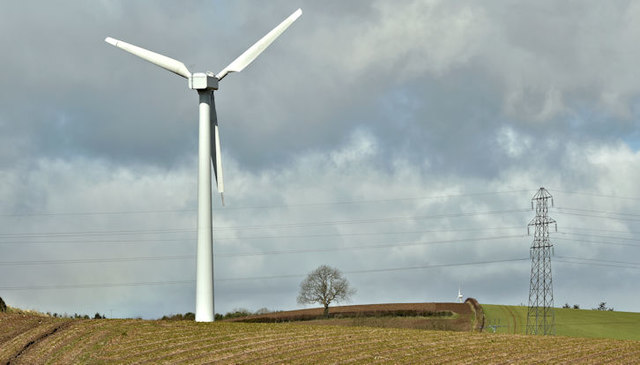Bord na Mona refuses to release biomass sustainability documents

July 17th, 2019
Bord na Mona has refused to release information on its biomass imports to burn alongside peat as criticism of the sustainability of the practice grows.
Bord na Mona’s Edenderry plant is the only peat plant to currently co-fire with biomass, doing so for over a decade now. Last year, the plant reached a 41 per cent biomass co-fuelling rate, with 30 per cent of the biomass sourced from abroad.
The semi-state company has said that it is developing a number of supply options for “carbon neutral commodity biomass” to generate renewable energy, yet has come under criticism for the lack of information provided on its imports.
Earlier this week, An Taisce raised doubts over the sustainability of 37,000 tonnes of woody biomass that Bord na Mona will import from Australia. The biomass will be used for a series of biomass trials at the ESB’s Lough Ree and West Offaly peat power stations.
According to An Taisce, all bioenergy used for power generation has a carbon impact and, as such, a full audit of emissions in the cultivation, harvesting, and replanting of biomass should be carried out.
EU rules state that biomass is carbon-neutral because the carbon lost through burning is recaptured through replanting and growing replacement biomass. However, this does not take into account the likes of emissions from land-use change, cultivation, and energy lost in burning wood for energy.
In reality, woody biomass can be far less efficient than fossil fuels like coal for each kilowatt-hour of electricity produced as more power may be needed to burn off the water content in wood.
The European Environment Agency warned back in 2011 that EU rules to encourage bioenergy “may even result in increased carbon emissions – thereby accelerating global warming”.
Data release refusal
While Bord na Mona has previously released documents in relation to its biomass imports, it recently refused to release data from 2017 and 2018 to The Green News following an Access to Information on the Environment (AIE) request.
Information sought included the type and amount of biomass imported, the country of origin, and documentation to show that the biomass was purchased from certified sustainable sources.
Bord na Mona determined that the information requested is held by a subsidiary of the semi-state that does not satisfy the definition of the public authority set out in the AIE Regulations.
“Therefore, there is no obligation on [the subsidiary company] to provide information in response to requests made under the Regulations,” the decision reads. The same decision was reached following an internal review requested by The Green News.
Information on imports from 2010 to 2016 was previously released to The Irish Times, with the paper finding that the semi-state was importing palm kernel shells (PKS) from plantations in some of the world’s most biodiverse countries without seeking sustainably records. The palm oil industry faces criticism for the likes of environmental damage, pollution of water sources, illegal logging and abuse of lowly paid workers.
The investigation revealed that for all its PKS imports during this period, Bord na Mona had only received sustainability certification for one batch imported from Nigeria. The semi-state told The Irish Times that sustainability information was provided on a “voluntary basis by third parties”.
Following the investigation, Bord na Mona agreed to stop importing the product and said that it would review the future supply of biomass “guided by the company’s sustainable business criteria”.

Semi-state side-track
The campaign group Right to Know (R2K) recently made an appeal to the Office of the Commissioner for Environmental Information (OCEI) in relation to Bord na Mona’s refusal to release biomass import documents.
R2K Director Gavin Sheridan said: “We believe the definition of public authority in the [AIE] Directive is broad for a reason. It seeks to include a whole range of bodies, including private companies owned by the State.”
“We can’t have a situation where public authorities might seek to avoid their environmental obligations via potential loopholes,” he told The Green News.
Last year, the transparency-focused group brought a similar appeal to the Commissioner in relation to a wind energy project within the Raheenleagh forest in County Wicklow.
The appeal came after the wind farm operator Raheenleagh Power DAC (RPDAC) – a company jointly owned by Coillte and ESB – refused an AIE request, arguing that it is not a public authority within the meaning of the Regulations.
During the OCEI investigation, ESB confirmed that the day to day operation of the wind farm is contracted out by RPDAC to ESB Wind Development Ltd. Raheenleagh Power, in turn, confirmed that it sells electricity to ESB Independent Energy Ltd, better known as Electric Ireland.
In addition, RPDAC filings list an ESB email address as the contact for the company secretary and the ESB legal department is listed as the company solicitor.
The company’s registered office is also at the ESB’s headquarters in Dublin and the refusal letter sent to R2K was signed by a member of numerous ESB entities.
The Commissioner found, however, that Raheenleagh Power was not a public authority for the purposes of the AIE Regulations. The decision was appealed to the High Court in March 2019.
Last September, R2K won a high profile case that led to the release of Cabinet records for the first time. The historic release followed an AIE request made by the group for documents on Cabinet discussions about emissions between 2002 and 2016.
The 2016 request was originally refused on the grounds of Cabinet confidentiality with the decision overturned by the High Court.Eighteen documents, many heavily redacted, were released covering discussions on energy supply, emissions projections, the carbon budget and climate-related legislation dating back to 2003.
[x_author title=”About the Author”]







